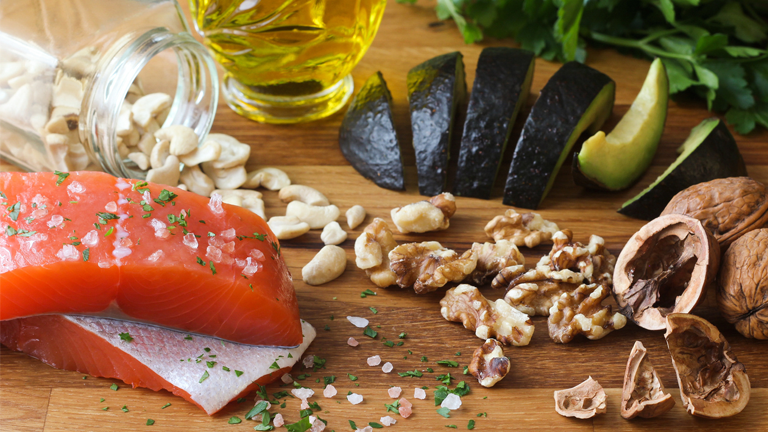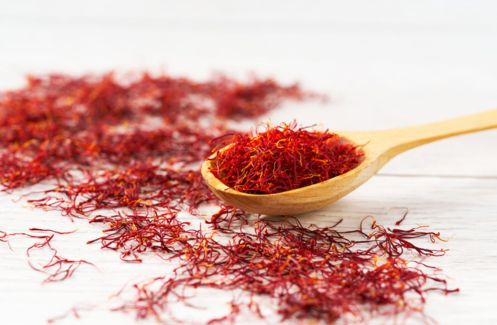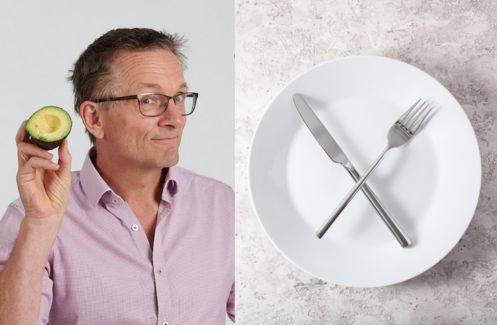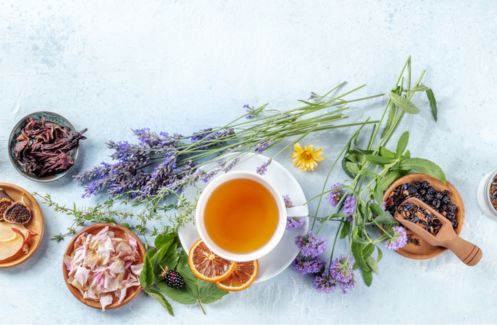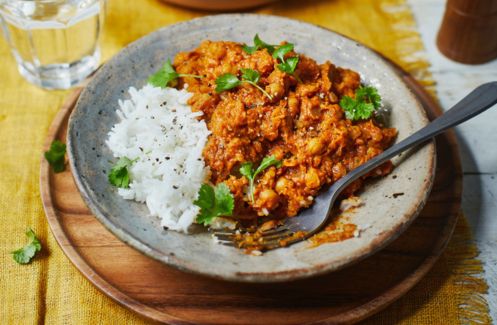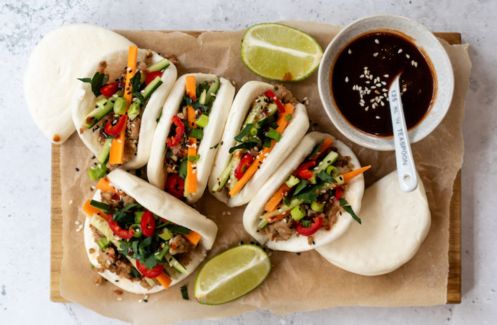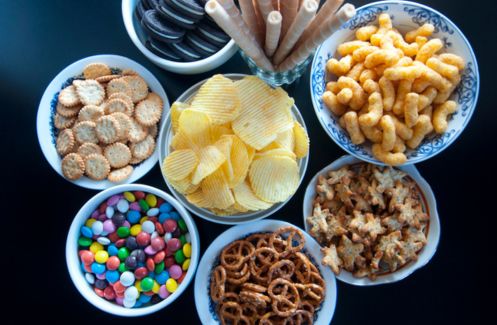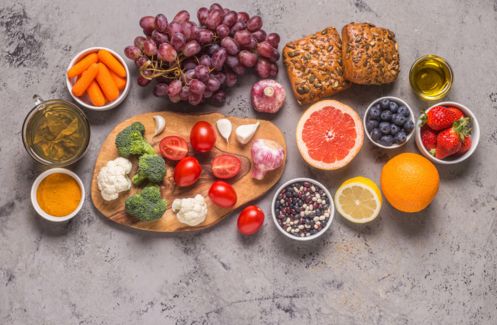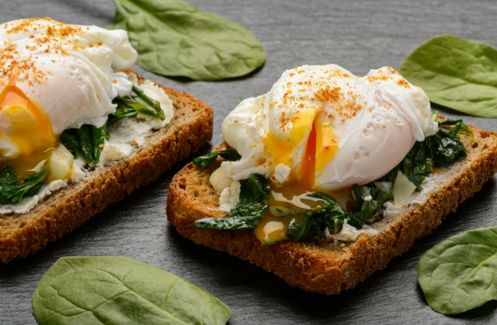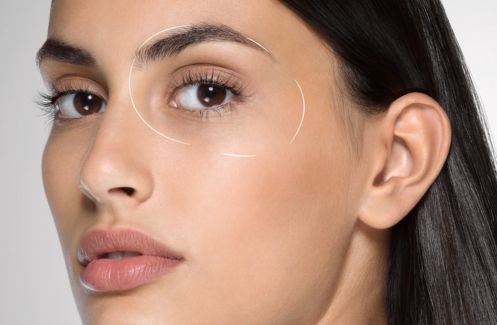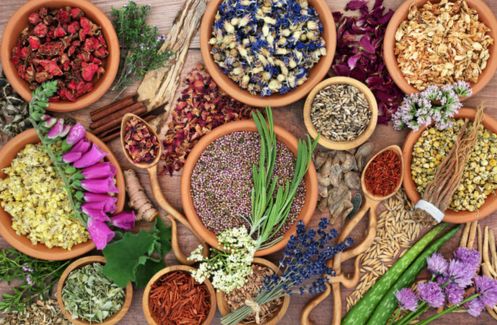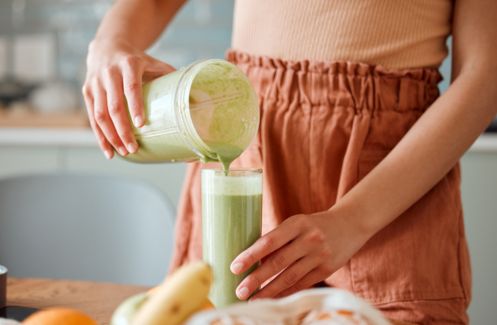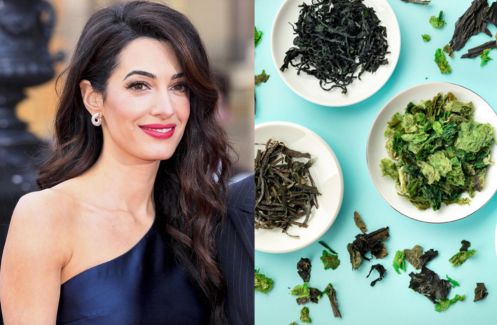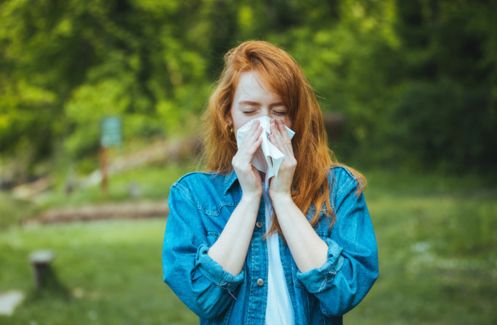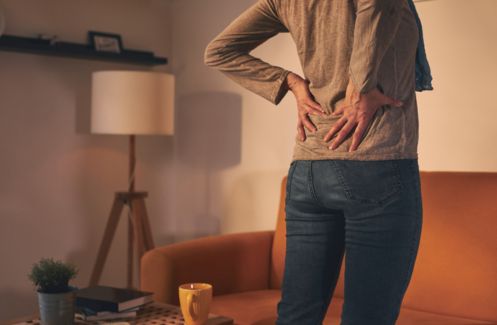Research shows that a Mediterranean diet may help prevent depression. Nutritionist May Simpkin reveals the benefits of eating by colour
Recent news reports show that following a Mediterranean diet may help prevent depression, as research suggests.
This research is based off findings in Molecular Psychiatry, from a review of 41 studies published within the last eight years.
Experts concluded that a plant-based diet of fruit, veg, grains, fish, nuts and olive oil – with reduced amounts of meat or dairy – appeared to have benefits in terms of mood.
People who followed a diet similar to this were found to be 33 per cent less likely to develop depression over the following eight to 12 years than those who didn’t adhere to a Mediterranean diet.
However experts also noted that the theory needs to be tested through trials and more research should be conducted on whether depression can be treated with diet.
We spoke to nutritionist May Simpkin, who explained the benefits of eating a plant-based diet rich in fruits, veg, fish and nuts.
When it comes to eating and diets, it’s often about avoiding everything ‘bad’ or bingeing on everything that’s apparently ‘good’. Avoid fat, eat butter, don’t eat butter, cut sugar, eat more protein, reduce red meat, eliminate gluten and avoid dairy. I’m a fully qualified nutritionist and I get confused. I can’t imagine what the poor old consumer must think.

A whole diet approach, in other words, choosing a variety of foods for varying food groups, offers a more balanced and ultimately a more sustainable approach to eating.
the Mediterranean diet, which has colour at its heart, has long been hailed as the world’s healthiest diet
There are certain areas in the world that have relied on instinctive eating, that doesn’t restrict certain foods but rather focuses on food choices that are indigenous to their region, whilst also ensuring healthy fulfilling lifestyles. These areas are also the areas in the world where people live the longest. These geographical areas are known as the Blue Zones and these areas have been well researched and characterised.

Two geographical areas included in this unique group are in the Mediterranean; Sardinia, just off the coast of Italy and Ikaria in Greece; an Aegean island with one of the world’s lowest rates of middle age mortality and the lowest rates of dementia. The other areas are Okinawa, a Japanese island, the Nicoya Peninsula in Costa Rica and a small town called Loma Linda in California.
if you vary your colour, you will vary your nutrients and your body will get exactly what it needs
These findings confirm our belief that the Mediterranean diet, which has colour at its heart, has long been hailed as the world’s healthiest diet and it’s easy to see why. with its abundance of fruits, vegetables, whole grains, legumes, nuts and healthy fats such as olive oil and it favours lean sources of proteins, such as fish and chicken in moderate amounts over red meat, which contains more saturated fats. Interestingly red wine, with its deep red colour, due to the antioxidant resveratrol also features, but in moderate amounts; one glass per day. Sweets and desserts are usually fruit and water the drink of choice.

Nature has made it easier for us to eat lots of fruit and vegetables by imparting different colours for different nutrients and making them striking enough for us to notice them and therefore eat them. For example the deep red colour found in tomatoes and watermelons; both a big part of the Mediterranean diet, is due to the antioxidant lycopene, which can protect against prostate and breast cancers. Likewise anthocyanins, found in aubergines and blueberries, responsible for their deep blue/purple colour, protect against free radicals produced as a result of oxidative stress. The bright orange colour of oranges, carrots and butternut squash is due to the beta-carotene, a precursor to the antioxidant vitamin A, which is an essential nutrient for eye health.
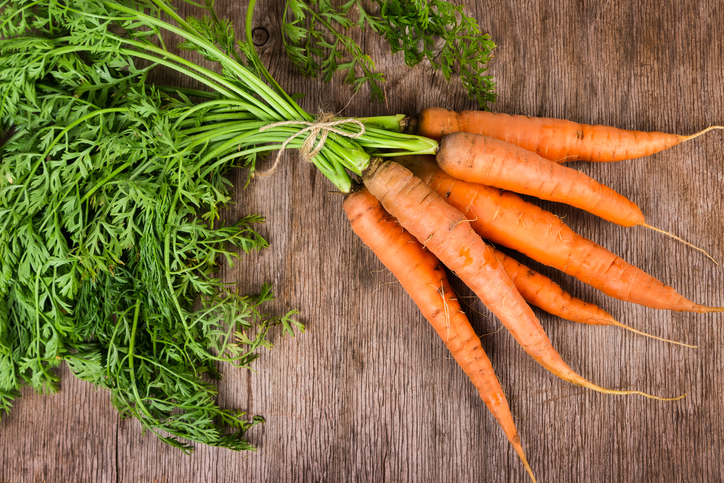
Another big component of the Mediterranean diet is olive oil. More specifically, a recent study at the University of Edinburgh, found that oleic acid, a compound found in olive oil may help to prevent cancer developing in the brain.
How to eat the Mediterranean way
- It’s all about the veg
Include at least five portions of non-starchy vegetables a day; for example, Aubergines, Peppers, Courgettes, Green Beans, Tomatoes, Cucumber. These vibrant Roasted Mediterraean Stuffed Red Peppers are a perfect combination of nutritious vegetables.
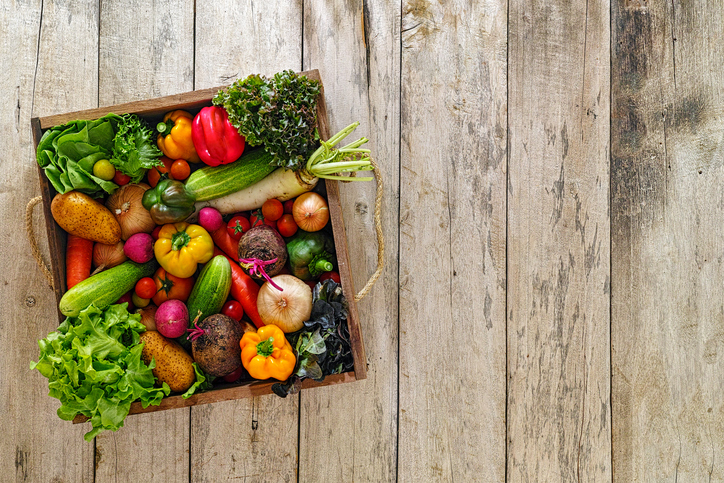
2. Healthy fats are your friend
Eat legumes such as lentils, chickpeas or butter beans on a daily basis, as well as nuts and seeds; these all provide good fibre and protein as well as healthy fats. Consider portions of nuts and limit to approximately 8-10 nuts.
Opt for healthy fats such as olive oil or avocado oil and include at least 5-6 teaspoons per day or ¼ of an avocado.
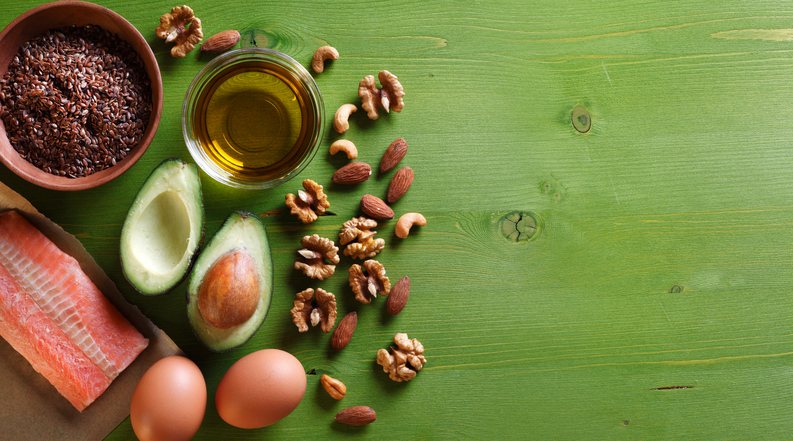
3. Get fishy
Aim to eat fish 2-3 times per week choosing oily fish, such as salmon, fresh tuna, mackerel and sardines where possible. These provide excellent protein as well as good levels of anti-inflammatory omega-3s. Flaxseed, walnuts and avocado are good plant-based alternatives. If you are unable to eat these quantities, perhaps consider a good quality omega 3 supplement.
4. Limit your dairy
Eat dairy foods in smaller amounts, approximately 1-2 servings daily; for example, 1 cup of milk, probiotic yoghurt or 30g cheese, opting for fresh curd cheeses such as feta or ricotta, which are easier to digest. But make sure you’re eating eggs, preferably organic, regularly, up to 3-4 times per week. Eggs are a nutritious first class protein and are easy and convenient.
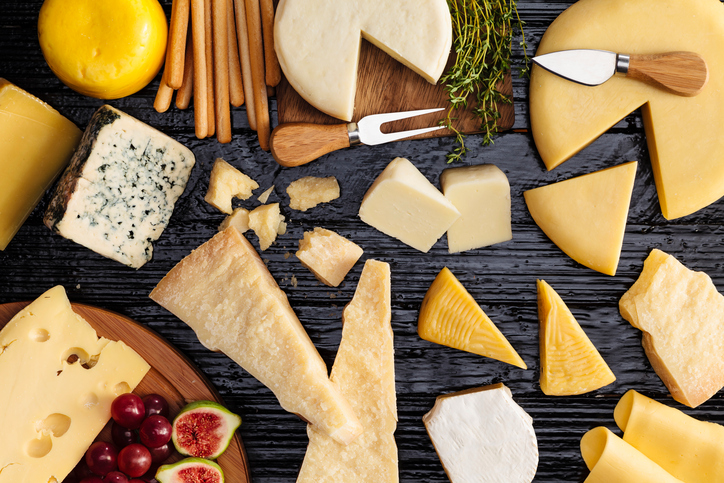
5. Make better choices
Avoid refined carbohydrates as these lack nutrients and fibre. Instead choose wholegrain or sourdough bread, made from fermented grains for easier digestion and better nutrient absorption.
6. Antioxidants are key
Include plenty of fresh or dried herbs such as oregano, basil, thyme or rosemary for their antioxidant benefits as well as providing flavour. Try this Green lentil salad recipe combines plenty of fresh herbs.
Eat in season where possible when fruits and vegetables are at their most nutritious
7. Drink yourself healthy
Drink good quality coffee and green tea in moderate amounts, with water as a drink of choice otherwise. Avoid fruit juices, squashes and cordials that are very high in sugar. Alcohol can be consumed but in very limited quantities; 1 small glass with a meal and preferably red wine.

8. Eat with the seasons
Eat in season where possible when fruits and vegetables are at their most nutritious and also more cost effective. Be adventurous and consider vegetables and fruits that you have not included; for example, slice some radishes into your salad or try roasting fennel as a side vegetable
Things to remember
Although there are some meat and fish, choose mostly plant-based foods, avoiding any processed foods typical of the western diet. Add colour to each meal to add nutrients and eat foods that are readily available, ideally grown as locally as possible. Finally, eat until you are 80 per cent full so that you are comfortably satiated but not overly stuffed.

leading nutritionists
May Simpkin is a UK qualified Nutritional Therapist with a Masters Science degree in Personalised Nutrition. She is an experienced clinician, practising functional medicine from an evidence base, providing the latest research into nutrition. She is a registered practitioner, bound by the code of ethics in clinical practice and has met the strict criteria required for BANT, the British Association for Applied Nutrition and Nutritional Therapy and the CNHC, Complementary and Natural Healthcare Council, which is the council recommended by the UK Department of Health for complementary and natural healthcare services. She is also Chair of the Continual Professional Committee at BANT. In addition, she is registered withAFMCP, The Institute for Functional Medicine – Applying Functional Medicine in Clinical Practice™ and a member of the RSM, The Royal Society of Medicine.
For more information on how to lose weight, nutrient-rich recipes, and ideas visit www.maysimpkin.com or Follow May on Instagram: @maysimpkinnutrition or Twitter @MaySimpkin
Read more
How FOOD can help depression – the nutritionist’s guide
4 ways your coffee habit is messing with your head
4 reasons you’re not losing weight on a vegan diet
Like this article? Sign up to our newsletter to get more articles like this delivered straight to your inbox.



